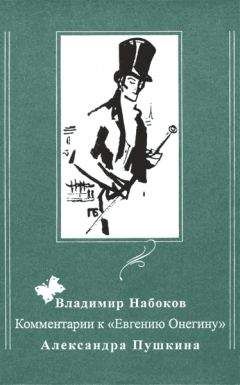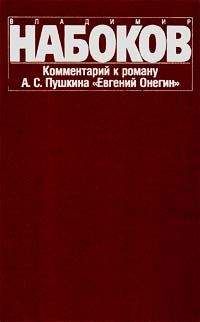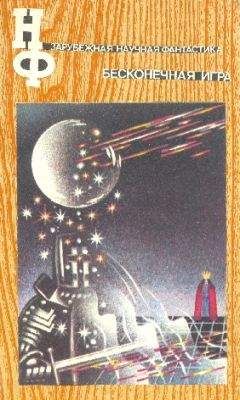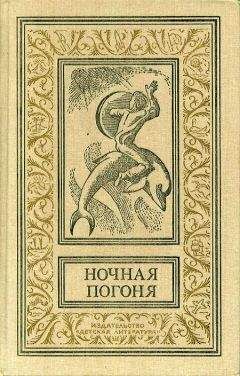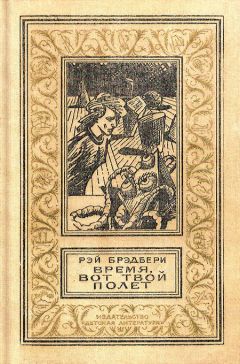XV
“What in the world can be
worse than a family where the poor wife frets
over an undeserving husband
4 and day and evening is alone;
where the dull husband,
knowing her worth (yet cursing fate),
is always sullen, silent, cross,
8 and coldly jealous?
Thus I. And is it
this you sought
with pure flaming soul when
with such simplicity,
12 with such intelligence, to me you wrote?
Can it be true that such a portion
is by stern fate assigned to you?
“For dreams and years there's no return;
I shall not renovate my soul.
I love you with a brother's love
4 and maybe still more tenderly.
So listen to me without wrath:
a youthful maid will more than once
for dreams exchange light dreams;
8 a sapling thus its leaves
changes with every spring.
By heaven thus 'tis evidently destined.
Again you will love; but.
12 learn to control yourself;
not everyone as I will understand you;
to trouble inexperience leads.”
Thus Eugene preached.
Nought seeing through her tears,
scarce breathing, without protests,
4 Tatiana listened to him.
His arm to her he offered. Sadly
(as it is said: “mechanically”),
Tatiana leaned on it in silence,
8 bending her languid little head;
homeward [they] went around the kitchen garden;
together they arrived, and none
dreamt of reproving them for this:
12 its happy rights
has country freedom
as well as haughty Moscow has.
You will agree, my reader,
that very nicely did our pal
act toward melancholy Tanya;
4 not for the first time here did he reveal
a real nobility of soul,
though people's ill will
spared nothing in him:
8 his foes, his friends
(which, maybe, are the same)
upbraided him this way and that.
Foes upon earth has everyone,
12 but God preserve us from our friends!
Ah me, those friends, those friends!
Not without cause have I recalled them.
What's that? Oh, nothing. I am lulling
empty black reveries;
I only in parenthesis observe
4 that there's no despicable slander
spawned in a garret by a babbler
and by the rabble of the
monde encouraged,
that there's no such absurdity,
8 nor vulgar epigram,
that with a smile your friend
in a circle of decent people
without the slightest malice or design
12 will not repeat a hundred times in error;
yet he professes to stand up for you:
he loves you so!... Oh, like a kinsman!
Hm, hm, gent reader,
are all your kindred well?
Allow me; you might want, perhaps,
4 to learn from me now what exactly
is meant by “kinsfolks”?
Well, here's what kinsfolks are:
we are required to pet them, love them,
8 esteem them cordially,
and, following popular custom,
come Christmas, visit them, or else
congratulate them postally,
12 so that for the remainder of the year
they will not think about us.
So grant them, God, long life!
As to the love of tender beauties,
'tis surer than friendship or kin:
even mid restless tempests you retain
4 rights over it.
No doubt, so. But one has to reckon
with fashion's whirl, with nature's waywardness,
with the stream of the
monde's opinion —
8 while the sweet sex is light as fluff.
Moreover, the opinions of her husband
should by a virtuous wife
be always honored;
12 your faithful mistress thus
may in a trice be swept away:
with love jokes Satan.
Whom, then, to love? Whom to believe?
Who is the only one that won't betray us?
Who measures all deeds and all speeches
4 obligingly by our own foot rule?
Who does not sow slander about us?
Who coddles us with care?
To whom our vice is not so bad?
8 Who never bores us?
Efforts in vain not wasting
(as would a futile phantom-seeker),
love your own self,
12 my worthly honored reader.
A worthy object! Surely, nothing
more amiable exists.
What was the consequence of the interview?
Alas, it is not hard to guess!
Love's frenzied sufferings
4 did not stop agitating
the youthful soul avid of sadness;
nay, poor Tatiana more intensely
with joyless passion burns;
8 sleep shuns her bed;
health, life's bloom and its sweetness,
smile, virginal tranquillity —
all, like an empty sound, have ceased to be,
12 and gentle Tanya's youth is darkling:
thus a storm's shadow clothes
the scarce-born day.
Alas, Tatiana fades away,
grows pale, is wasting, and is mute!
Nothing beguiles her
4 or moves her soul.
Shaking gravely their heads,
among themselves the neighbors whisper:
Time, time she married!...
8 But that will do. I must make haste
to cheer the imagination with the picture
of happy love.
I cannot help, my dears,
12 being constrained by pity;
forgive me: I do love so much
my dear Tatiana!
From hour to hour more captivated
by the attractions of young Olga,
Vladimir to delicious thralldom
4 fully gave up his soul.
He's ever with her. In her chamber
they sit together in the dark;
or in the garden, arm in arm,
8 they stroll at morningtide;
and what of it? With love intoxicated,
in the confusion of a tender shame,
he only dares sometimes,
12 by Olga's smile encouraged,
play with an unwound curl
or kiss the border of her dress.
Sometimes he reads to Olya
a moralistic novel —
in which the author
4 knows nature better than Chateaubriand —
and, meanwhile, two-three pages
(empty chimeras, fables,
for hearts of maidens dangerous)
8 he blushingly leaves out.
Retiring far from everybody,
over the chessboard they,
leaning their elbows on the table,
12 at times sit deep in thought,
and Lenski in abstraction takes
with a pawn his own rook.
When he drives home, at home he also
is with his Olga occupied,
the volatile leaves of an album
4 assiduously adorns for her:
now draws therein agrestic views,
a gravestone, the temple of Cypris,
or a dove on a lyre
8 (using a pen and, slightly, colors);
now on the pages of remembrance,
beneath the signatures of others,
he leaves a tender verse —
12 mute monument of reverie,
an instant thought's light trace,
still, after many years, the same.
You have, of course, seen more than once the album
of a provincial miss, by all her girl friends
scrawled over from the end,
4 from the beginning, and around.
Here, in defiance of orthography,
lines without meter, [passed on] by tradition,
in token of faithful friendship are entered,
8 diminished, lengthened.
On the first leaf you are confronted with:
Qu' écrirez-vous sur ces tablettes? signed:
toute à vous Annette;12 and on the last one you will read:
“Whoever more than I loves you,
let him write farther than I do.”
